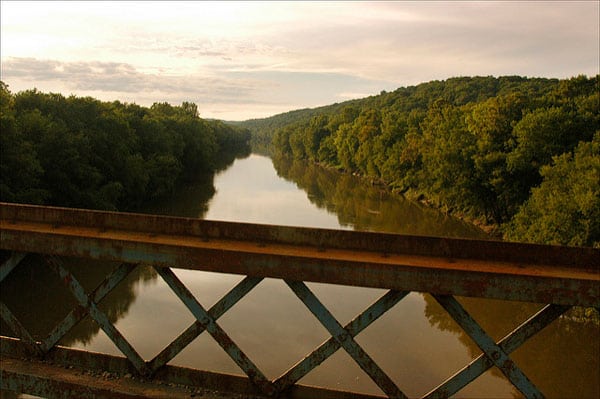
September 5, 2018; City Lab
Nonprofit exchange programs to promote understanding across national borders have existed in the United States for more than 70 years. Indeed, “study abroad” has become a common part of the collegiate experience. In 2012, for instance, over 819,000 students from abroad studied at US universities, while 283,000 US students studied abroad.
But what about an exchange program to build cultural understanding within the United States? This is the idea of a small nonprofit dedicated to supporting rural culture named Art of the Rural. Matthew Fluharty, the nonprofit’s founder, tells Sarah Baird of City Lab that he believes “the future of the 21st century exists in the space between rural and urban.”
Savannah Barrett, who works with Fluharty, hails from rural Grayson County, Kentucky, but works out of Louisville. Barrett directs a program called the Kentucky Rural-Urban Exchange (RUX), which seeks to bring together “leaders in diverse fields from across the state.” The exchange program was launched in 2014 by Art of the Rural and is organized in partnership with the Eastern Kentucky arts nonprofit Appalshop.
The idea that rural and urban communities share a lot in common is not a new one, of course. Earlier this year, Laura Zabel, who directs Springboard for the Arts, a nonprofit that works with artists in both urban and rural Minnesota, wrote that their work, both rural and urban, “aims to tap into people’s creativity to help communities and neighborhoods build power and agency, imagine new futures and expand economic opportunity.”
RUX is motivated by a similar philosophy. “Over the course of a year,” Baird explains, “RUX participants go on three weekend-long retreats to strengthen bonds with people from other parts of the state…to increase mutual understanding, spark collective problem-solving, and, of course, develop friendships across divides, whether real or perceived.”
The exchange “really get[s] down to the nitty-gritty,” says Tanya Torp, who participated in one cohort of the exchanges. Torp serves as executive director of Step by Step, a Lexington-based nonprofit serving single mothers.
Sign up for our free newsletters
Subscribe to NPQ's newsletters to have our top stories delivered directly to your inbox.
By signing up, you agree to our privacy policy and terms of use, and to receive messages from NPQ and our partners.
“In the city, we have a gentrification issue that might not be a rural issue, necessarily. But they have some of the same fallout—like the rent being too high and generational poverty,” Torp says. “So, we began to really talk about these issues that we thought had totally different causes, and we started to see commonality.”
Emily Stewart, another program alumna, says she learned through the program that “there’s a lot more diversity, and a lot more that unites us, throughout the state” than she realized.
Baird notes the care that is taken to reflect the diversity of the state in the retreats the nonprofit organizes. “The retreats move around the state, and each one revolves around activities that reflect local life and culture,” Baird explains, “whether it’s having coffee with members of the Bosnian community in the south-central Pennyrile region, or talking with residents about the heritage of Redfox, an African-American hamlet outside of Hindman in Eastern Kentucky.”
“Nearly half of Kentucky’s 120 counties are considered rural,” Baird adds, “but their population only accounts for 23 percent of the state’s total.” Four out of 10 Kentuckians live in just 10 of its 120 counties. Incomes vary widely by region. According to Baird, “The median household income in Oldham County, a wealthy suburb of Louisville, hovers around $79,000, while in Eastern Kentucky’s Owsley County, it’s only $19,000.”
To date, more than 200 Kentucky residents have participated in RUX-sponsored exchanges. Many program alumni maintain ties with each other after the program ends. For example, Baird reports that, “Torp’s RUX friends helped her take a group of young moms from Lexington on their first hiking trip.”
Once, Barrett recalled, other RUXers “brought together youth of color from Louisville and folks from several counties around [rural] Hazard. They met on a mountaintop for two days and did a mini-RUX with these high-school youth.”
At present, the program solely exists in Kentucky, but Barrett hopes that it might be replicated in other states. Barrett says that one of her goals is “to create a free online toolkit for other states interested in building a program like RUX.”—Steve Dubb













